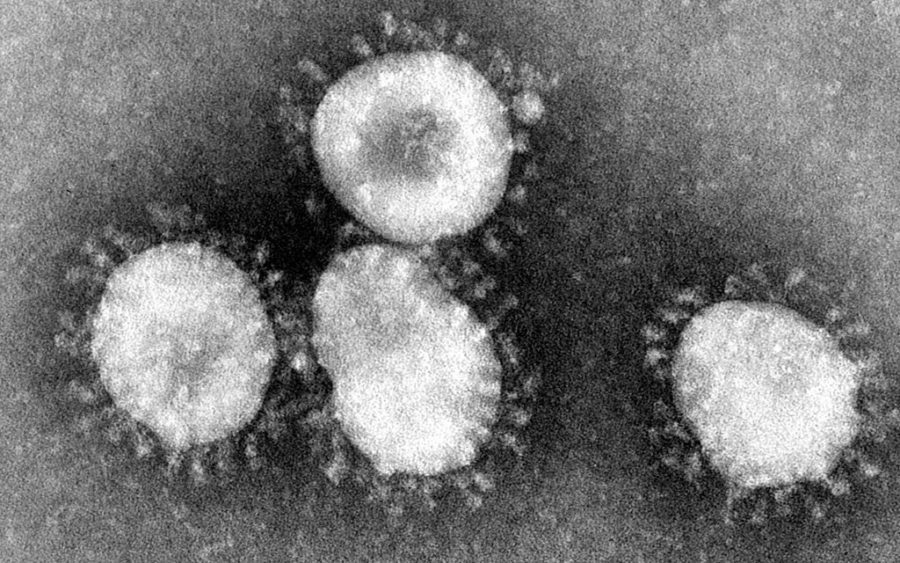All Covid-19 cases genetically sequenced in the ongoing “February 20” outbreak in Cambodia — which has seen more than 1,000 patients total — have been the more contagious B.1.1.7 variant, believed to be the only variant currently circulating in Cambodia, the U.S. Centers for Disease Control and Prevention in Phnom Penh said Thursday.
“All cases sequenced from this outbreak so far have been infected by the B.1.1.7 variant, and we have no reason to believe that there is any other variant circulating in Cambodia at this time,” U.S. CDC said in an emailed statement.
The B.1.1.7 variant is estimated to have emerged in the U.K. in September, and has been linked to higher rates of contagion and mortality.
An official in Phnom Penh with knowledge of the sequencing, but who was not authorized to speak publicly on the matter, said fewer than 20 cases had been genetically sequenced to date.
Until the emergence of the February 20 cluster, Cambodia suffered unusually low rates of Covid-19. As of February 19, Cambodia had seen just 484 total cases of Covid-19 and no official deaths. That number has more than tripled in less than a month, making the current outbreak by far the country’s worst to date.
Since March 4, the country has reported three deaths of quarantined Covid-19 patients, one of whom the Health Ministry said died of Covid-19.
The U.S. CDC said the outbreak is believed to have started with an infected airline passenger who left quarantine without authorization on the night of February 8. The disease has since spread to “multiple communities in multiple provinces,” it said.
The spread has been centered around contact within households and in crowded, close-contact and confined spaces, the U.S. CDC said.
“Our understanding is that this outbreak started by exposure in a 3C setting to an individual infected with the B.1.1.7 variant,” it said.
“Examples include indoor group events, casinos, KTVs, long car rides, spa visits, and dormitories,” it said. “Outdoor settings are less likely to see transmission, but the risk is still not zero.”
The U.S. CDC said it was supporting the Health Ministry in its investigations, alongside other partners such as the Pasteur Institute, and the priority was bringing the outbreak under control.
“When it reached its current scope is less important than identifying all exposed contacts of confirmed cases as soon as possible to prevent further transmission and bring the outbreak under control,” it said.
The U.S. CDC added that the AstraZeneca vaccine — one of two types Cambodia has so far rolled out — is known to be effective against the B.1.1.7 variant, with preliminary research showing 75 percent effectiveness. The same study found the vaccine was 84 percent effective against other Covid-19 variants, the CDC said.
“Unfortunately, the efficacy data from the Sinopharm vaccine have not been published, so it’s unclear how well it prevents B.1.1.7 strains of SARS-CoV-2,” the virus that causes Covid-19, it said.
As of this week, the Health Ministry said it had given people more than 34,000 doses of AstraZeneca and 144,000 doses of Sinopharm. This does not include the approximately 100,000 doses of Sinopharm given to the country’s soldiers.
Health Ministry spokesperson Or Vandine could not be immediately reached for comment late Thursday.
According to the journal Nature, researchers in Cambodia last year found a virus “closely related to” SARS-CoV-2 in horseshoe bats collected in 2010 and frozen.
Researchers said in the November article that the genetic fragment sequenced was too small to draw conclusions about the exact relation between the two viruses.
Nevertheless, the discovery could inform the search for Covid-19’s origins if the virus in the horseshoe bats is found to be very closely related to, or even an ancestor of, SARS-CoV-2, Veasna Duong, a virologist at the Pasteur Institute, told Nature.
Additional reporting by Michael Dickison













